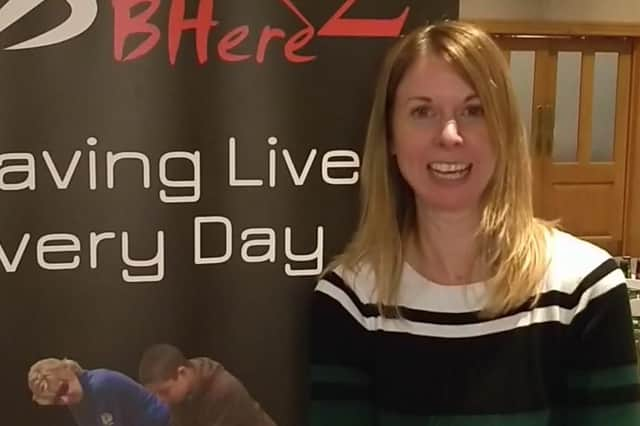Investigating the impacts of sudden cardiac arrest


Lucky2bhere, the Skye-based charity, has been awarded funding to research the support needs of survivors, rescuers and also by-standers who suddenly become involved In life-saving dramas
Founded in 2011 by Portree’s Ross Cowie, Lucky2bhere has placed more than 1000 defibrillators and delivered emergency life support training to 40,000 people in communities across Scotland,
Advertisement
Hide AdAdvertisement
Hide AdLucky2bhere’s community of survivors and rescuers have told them that their mental wellbeing is currently being neglected and in response to this feedback, the charity will now investigate the hidden impacts of Sudden Cardiac Arrest on individuals.
In collaboration with Save a Life Scotland, Lucky2bhere was successful in securing funding from the Ideas Fund, a grants programme run by the British Science Association and funded by Wellcome, which enables the UK public to address problems related to mental wellbeing.
Working with the Resuscitation Research Group at the University of Edinburgh, Lucky2bhere will be involved in the research project over a period of nine months, led by SCA survivor Michelle Macleod from Lewis for Lucky2bhere and Lisa Macinnes, Director of Save a Life Scotland.
When it draws together its findings and any consistent themes they produce, they will be presented to the NHS and other organisations involved in mental as well-being.
Advertisement
Hide AdAdvertisement
Hide AdMichelle Macleod said that, as a survivor, it was exciting to be involved in such a project. She collapsed at the end of the Harris marathon in 2019 and was in intensive care for several weeks before making a gradual recovery.
She told the Gazette: “We’re very much at the early stage. The whole project was developed in response to what Lucky2bHere heard from working with survivors, rescuers and by-standers. There seems to be a bit of a void in services currently provided.
“The best way to find if there really is a void is to ask people, define commonalities in people’s experience and feed that information to stakeholders. We don’t know what we are going to find out. It is unknown territory we are stepping into”.
Michelle said: “After my own experience, it’s a project I could not turn down being involved in.”
Advertisement
Hide AdAdvertisement
Hide AdWhile Michelle has made a full recovery, she knows that every case is different. The prospects of individuals are affected by the length of time before help arrives. “Sometimes, there is brain damage from a lack of oxygen. That affects some survivors but not others.
“Quite rightly, attention is predominantly focused on physical recovery and there is no criticism of the NHS . They were amazing with every aspect of my own care but when you go home from hospital, there is still a part missing”.
Ross Cowie said: “We are very grateful to the Ideas Fund for granting us funding to pursue this new project which will allow us to investigate the deeper impact of SCA and hopefully feed our findings on to those who develop services in future.”
If you would like to take part or find out more information, please email [email protected]